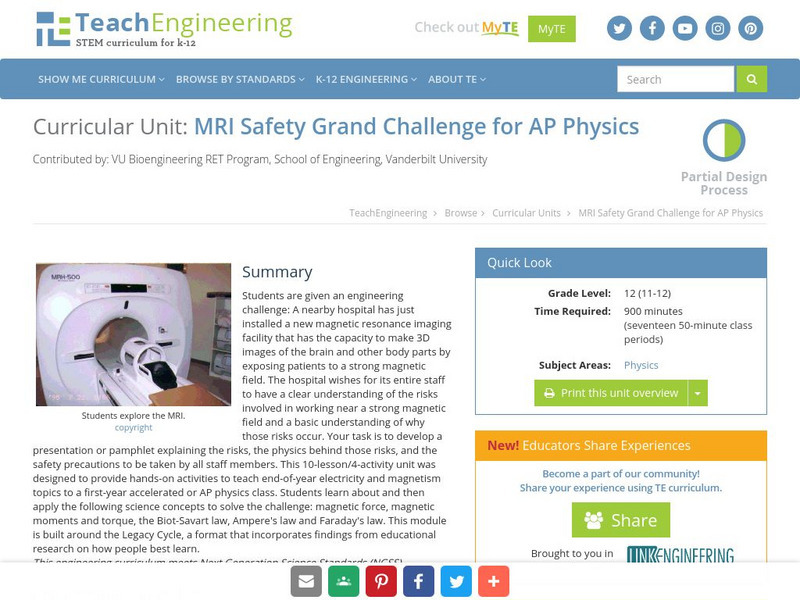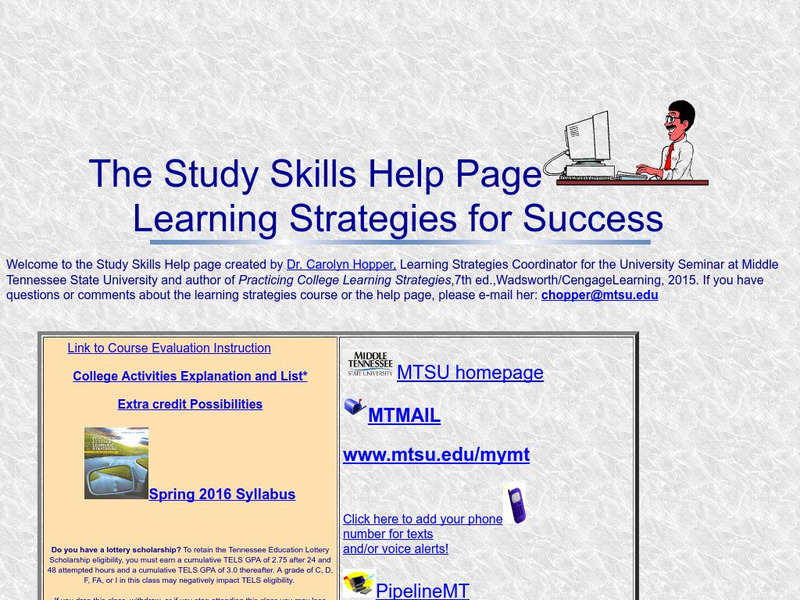Hi, what do you want to do?
Scholastic
Scholastic: I Spy: The Library
I SPY activities consist of software, jigsaw puzzles, and games for children. Students use problem-solving skills when playing the visual brain-teasing puzzle. The resource combines photographs of familiar object collections with rich...
Scholastic
Scholastic: I Spy: City
I SPY activities consists of software, jigsaw puzzles, and games for children. Students use problem-solving skills when playing the visual brain-teasing puzzle. The resource combines photographs of familiar-object collections with rich...
Scholastic
Scholastic: I Spy: The View From Duck Pond Inn
I SPY activities consist of software, jigsaw puzzles, and games for children. Students use problem solving skills when playing the visual brain-teasing puzzle. The resource combines photographs of familiar-object collections with rich...
TeachEngineering
Teach Engineering: Our Bodies Have Computers and Sensors
Students learn about the human body's system components, specifically its sensory systems, nervous system and brain, while comparing them to robot system components, such as sensors and computers. The unit's life sciences-to-engineering...
TeachEngineering
Teach Engineering: Mri Safety Grand Challenge
This module was written for a first year accelerated or AP physics class. It is intended to provide hands on activities to teach end of the year electricity and magnetism topics including the magnetic force, magnetic moments and torque,...
Sophia Learning
Sophia: Vocab Tip: Hear It Said Out Loud
This video lesson focuses on the strategy of hearing unfamiliar vocabulary said aloud. The advantages of hearing it said aloud include activating prior knowledge and the brain remembering it better. It offers ways to learn the...
Sophia Learning
Sophia: Vocab Tip: Say It Out Loud
This video lesson offers a tip for learning new vocabulary words by saying the word and its definition aloud. This stimulates the brain and activates prior knowledge which helps you remember the word. It also covers what to do if you...
Other
Wisewire: Grade 3 Playlist: Identifying Real Life Connections Between Words
Often, without even realizing it, readers are connecting the words they read to their everyday lives. The human brain is moving so fast that even while reading, behind the scenes, readers are making connections to their real lives and to...
Scholastic
Scholastic: Hands on Is Minds On
As students put projects together, create crafts, or use familiar materials in new ways, they're constructing meaning. Students love to touch and manipulate materials and this can activate kids' brains. This article gives tips for...
Edutopia
Edutopia: Innovative Practice: 5 Strategies for the Early Learning Classroom
Project- and play-based learning are essential in the early grades to develop creative learning dispositions during the brain's most active period of synaptic growth. Here are five strategies that can be implemented in early learning...
Khan Academy
Khan Academy: Reflect: Keep Going. Keep Growing
Not all strategies for overcoming frustration work for everyone. You have to find out which strategies work best for you! Use the reflection questions below to develop your own plan to keep going, keep growing when you get frustrated.
Khan Academy
Khan Academy: Learn: The Growth Mindset
This article showcases the difference between a growth mindset and a fixed mindset.
Khan Academy
Khan Academy: Mistakes Can Be Good if We Learn From Them!
Mistakes are a natural part of the learning process, and how we react to them can be either harmful or helpful. Listen as kids discuss their experiences with mistakes.
Curated OER
Univ. Of Washington: Neuroscience for Kids
"Created for all students and teachers who would like to learn more about the nervous system," this extensive University of Washington site offers information, resources, games, and activities galore. Offers dozens of links to related...
Curated OER
Univ. Of Washington: Neuroscience for Kids
"Created for all students and teachers who would like to learn more about the nervous system," this extensive University of Washington site offers information, resources, games, and activities galore. Offers dozens of links to related...
Other
Tennessee State University: The Study Skills Help Page
The Study Skills Help Page provides learning strategies for success. Explore the learning tools and tips that you can use to become a more skilled learner.
Other
Go Noodle
This free site (requires registration) offers videos that encourage "mind breaks" during the school day. Short videos get kids up and moving for a couple of minutes to help them use excess energy productively and then settle down to...
University of Cambridge
University of Cambridge: Nrich: Got It
Sharpen your logical thinking and see if you can figure out the strategy to get to the target number before the computer.
Edutopia
Edutopia: Maintaining Students' Motivation for Learning as the Year Goes On
This article explores the idea that neuroscience can suggest ways to keep students working toward their learning goals after their initial excitement wears off. Included are ways to provide choice to invigorate students' motivation,...
PBS
Pbs Teachers: Mystery of the Senses Smell
Understand how the sense of smell has strong connection to the limbic region of the brain and experience how the brain associates smells with memories and emotions.
PBS
Pbs Teachers: Phenakistascope
Explore how the eye and brain interpret a series of pictures as motion by building a spinning motion picture show from a paper plate.
PBS
Pbs: Scientific American: Uncovering a Signal
An activity in which learners analyze simulated brain signals and attempt to determine which signals control which muscle activity, imitating the manner in which a computer attempts to decipher brain signals for use in bionics.
Exploratorium
Exploratorium: Science Snacks: Lateral Inhibition
An activity that will have you questioning which is in control, your eyes or your brain? This activity has students constructing simple paper tubes to investigate how the eyes work.
Exploratorium
Exploratorium: Science Snacks: Far Out Corners
An activity with an optical illusion that will have your eyes seeing a cluster of boxes but is it really boxes? In this activity, explore this illusion and what happens to trick your brain to seeing what it sees.























